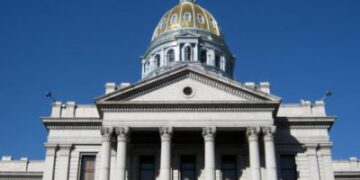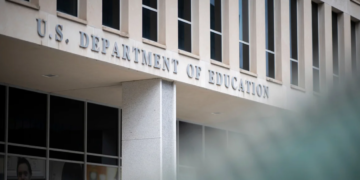March 16, 2025 Story by: Editor
For Nevaeh Parker, president of the Black Student Union (BSU) at the University of Utah, Black History Month has traditionally been a vibrant and engaging time on campus.
Throughout the month, the BSU typically organizes various events, including kickback parties and movie screenings. The Black Cultural Center, a central gathering space for Black students, would normally be bustling with activity. A highlight of the month was usually a conference aimed at Black high school students in the area.
However, in July 2024, the university shut down the cultural center, repurposing it for office use. The BSU’s budget—once a guaranteed $11,000 annually to support events for the university’s small Black student population—was drastically reduced. To maintain their focus on Black student advocacy, the group was forced to disassociate from the university, all due to a new anti-DEI (Diversity, Equity, and Inclusion) law passed in Utah.
“It really hurts my soul to feel like we’re going backwards,” said Parker, 19, in an interview with The Guardian. “We aren’t able to be as strong of a resource as we could be to Black students here.”
BSUs Face Mounting Challenges Due to Anti-DEI Legislation
Black Student Unions, first established in the 1960s and 1970s, have long served as crucial support systems for Black students at predominantly white institutions. They have historically advocated for increased resources, more Black faculty, and safe social spaces for Black students. Their activism has also played a significant role in the establishment of African American Studies programs across the country.
In addition to providing support, BSUs have been on the front lines in responding to racial discrimination, often leading protests and pushing universities to address systemic inequities. Following the 2020 murder of George Floyd, numerous BSUs mobilized demonstrations across campuses.
However, new anti-DEI laws are limiting the scope of BSUs and how universities can legally support them. Since 2023, at least 11 states have enacted legislation targeting DEI initiatives in higher education, with lawmakers in over 30 additional states proposing similar bills. On a national level, former President Donald Trump sought to eliminate DEI measures in schools and universities, threatening to cut federal funding for noncompliant institutions.
Initially designed to support marginalized students facing discrimination, financial barriers, and social alienation, DEI programs are now under attack by Republican legislators, who argue that these initiatives unfairly disadvantage white students. The push to dismantle DEI efforts has intensified since the U.S. Supreme Court ruled against race-conscious admissions in June 2023.
The impact of these policies has been widespread. Universities have canceled scholarships for students of color, shut down multicultural and LGBTQ+ student centers, and reassigned or dismissed DEI staff.
Utah’s New Law Forces BSU to Adapt
In January 2024, Utah lawmakers passed House Bill 261, also called the Equal Opportunity Initiatives Act, which prohibits state schools and public institutions from engaging in “differential treatment.” This effectively bans DEI-focused programs.
In response, the University of Utah closed its Black Cultural Center, a major setback for Black students seeking a designated space to connect, particularly given that only 3% of the student body is Black. “It was a home away from home for a lot of students, especially those who lived out of state,” Parker explained. “Utah is less than 2% Black, [so] obviously, you are going to need spaces that are safe.”
The BSU lost its advisor, and university administrators who once oversaw the organization were either reassigned or resigned. Additionally, events sponsored by the university are now prohibited from using the terms “diversity, equity, and inclusion.”
“It basically took away our voice and took away what things that we wanted to talk about,” Parker said of the restrictions.
University of Utah officials told The Guardian that student groups centered around specific identities can still operate as “affiliated” or “registered” organizations.
“The University of Utah preserves and defends the rights of all registered student organizations—including the Black Student Union—to organize, gather and sponsor events on campus. Universities are marketplaces of diverse viewpoints and ideas, and that includes within our student clubs. Changing their status from ‘sponsored’ to ‘registered’ preserves their independence to continue working with a community of students, faculty and staff without limitation on their communication and activities.”
The university also pointed to the establishment of two new centers—the Center for Community and Cultural Engagement (CCE) and the Center for Student Access and Resources—which they claim continue to provide the same level of support in advising, scholarship assistance, resource referrals, and mentorship. They also stated that BSU’s former funding has been “redistributed to efforts that work toward supporting all students.”
Parker, however, said that these new centers do not focus on student organizations or affinity groups. “It’s felt like their ability to support us in the ways that we need have not been met,” she noted.
BSUs Across the Country Face Similar Struggles
In October, Utah’s BSU formally announced that it would forgo official university sponsorship to resist efforts to silence their advocacy. As a result, some events have been canceled as students attempt to stretch limited, crowdsourced funds. The group has also been forced to meet less frequently, lacking a dedicated space. Meetings now take place in various campus classrooms.
Black students at the University of Alabama have encountered similar challenges. Their BSU lost its funding and was forced to relocate after an anti-DEI law took effect in October 2024.
“It’s been hard for freshmen especially to find their community and find like-minded people that look like them,” said Jordan Stokes, BSU president at the University of Alabama.
According to Stokes, 20, the organization must now collaborate with other student groups if it wants university funding for events, as programs solely for Black students are no longer permitted under state law. Despite these obstacles, the BSU has managed to secure financial support from outside sponsors and alumni to fund Black History Month events, including their annual BSU Week. However, these external funds remain limited compared to university resources.
The closure of the BSU’s office at Alabama has also led to concerns about preserving historical materials. The space housed civil rights artifacts, past event materials, and yearbooks featuring Black student history. Now, much of this archive is in storage.
“We had writing on our wall and on the window where you could read about our history and everything,” Stokes said. “It’s pretty sad for folks who [aren’t Black] to not see this history and learn and explore different cultures.”
The University of Alabama did not respond to The Guardian’s request for comment.
Continuing the Fight
Both Parker and Stokes expressed frustration at lawmakers targeting BSUs and other organizations supporting students of color. Parker also noted the difficulty of watching their universities comply with these policies, especially since openly protesting against anti-DEI measures could put their organizations at risk of removal.
Despite these challenges, both BSUs remain committed to providing a sense of community for Black students. Stokes reported that BSU events continue to attract strong attendance, with growing student interest in civic engagement and voting in response to these policies.
Parker emphasized that their focus remains on individual students who rely on the BSU, no matter the obstacles. The group remains dedicated to celebrating Black culture and maintaining their presence on campus.
“It’s really sad,” she said, “that we as students, who are not politicians, have to take the responsibility to continuously fight every single day for our existence on campus.”
Source: The Guardian

















